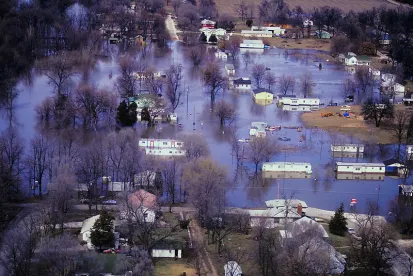Louisiana’s legal community has grown accustom to offering pro bono legal assistance to Louisiana storm victims. After addressing foremost concerns like shelter, food, water, and clothing, disaster victims are left to grapple with more intricate setbacks like insurance claims and FEMA appeals, landlord-tenant disputes, contractor fraud and contract disputes, custody and domestic disagreements, consumer issues, and lost legal documents, to name a few.
The 2017 hurricane season has largely spared Louisiana relative to other U.S. states like Texas and Florida, and U.S. territories like the USVIs and Puerto Rico, where millions were left without power and basic necessities weeks after Hurricane Maria. Louisiana lawyers are paying it forward and expanding a “disaster legal hotline”—normally reserved for low-income Louisiana residents—to help those devastated by the hurricanes in Puerto Rico and the USVIs.
Louisiana’s efforts are a leading example of a national program established in 1978 by the Federal Emergency Management Agency (FEMA) in partnership with the American Bar Association Young Lawyers Division (ABA YLD) to provide pro bono disaster legal services to low-income survivors of a federally-declared disaster. When the Federal Government issues a disaster declaration in a particular state, FEMA and the ABA YLD, through the state’s young lawyer representative, coordinate with bar associations, legal aid groups, and law firms to implement the program, known as Disaster Legal Services (DLS). In Louisiana, the Disaster Legal Services program is administered with the Louisiana State Bar Association through the Louisiana Civil Justice Center (LCJC), which was formed after Hurricane Katrina and works to expand access to justice to low-income populations around Louisiana. The LCJC operates a year-round civil legal aid hotline, which is adapted to intake disaster-related calls for the Disaster Legal Services program.
the largest intake in the history of the Federal Disaster Legal Services program.
Louisiana displayed its pro bono capacity following the historic Baton Rouge flooding in August 2016, when more than 4,300 individuals called into the disaster legal hotline—the largest intake in the history of the Federal Disaster Legal Services program.
Louisiana’s legal community, all too familiar with disasters, is now graciously leveraging its experience to help our fellow Americans as their needs transition from “boots on the ground” to “suits on the ground.”




 />i
/>i

